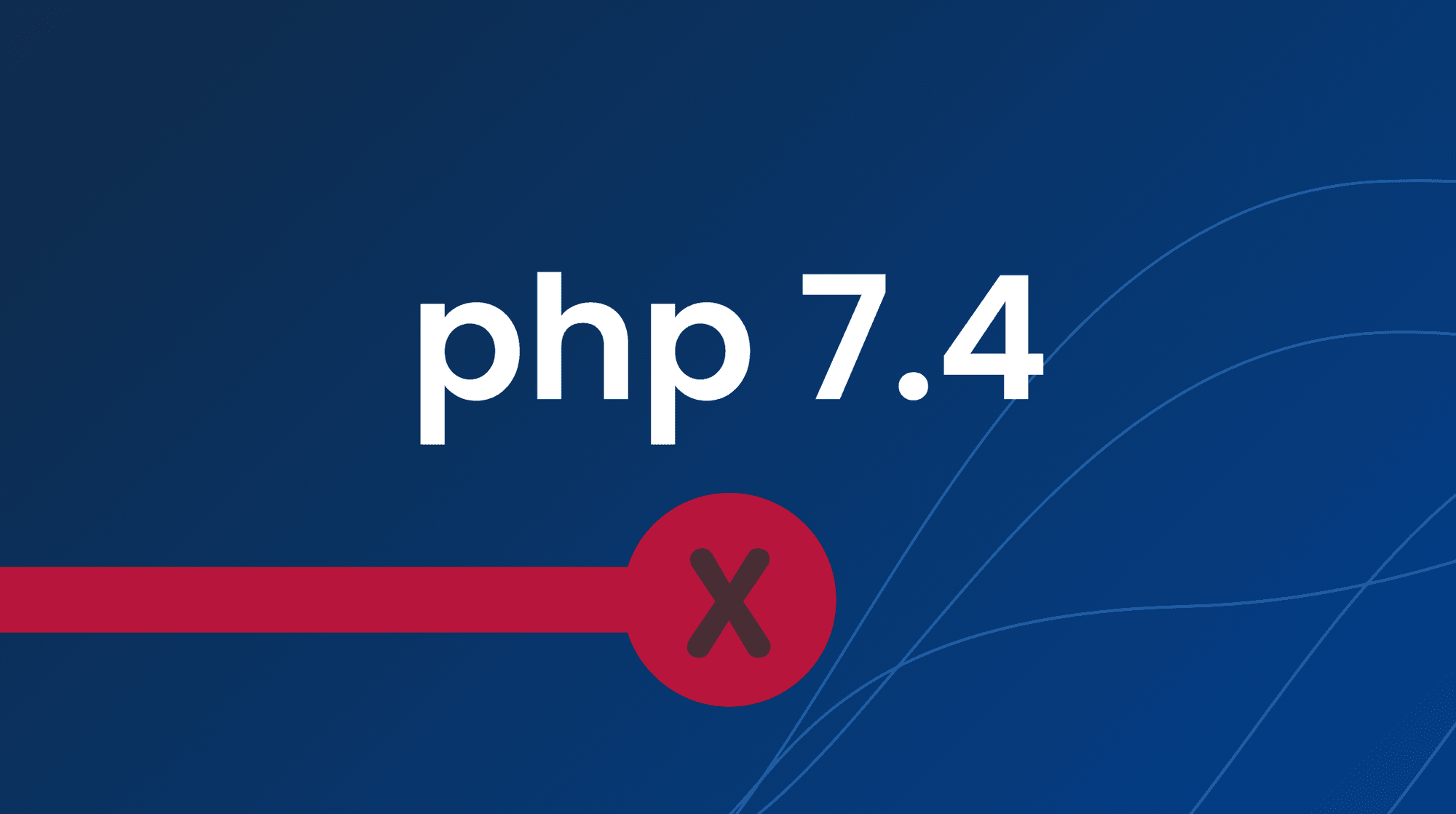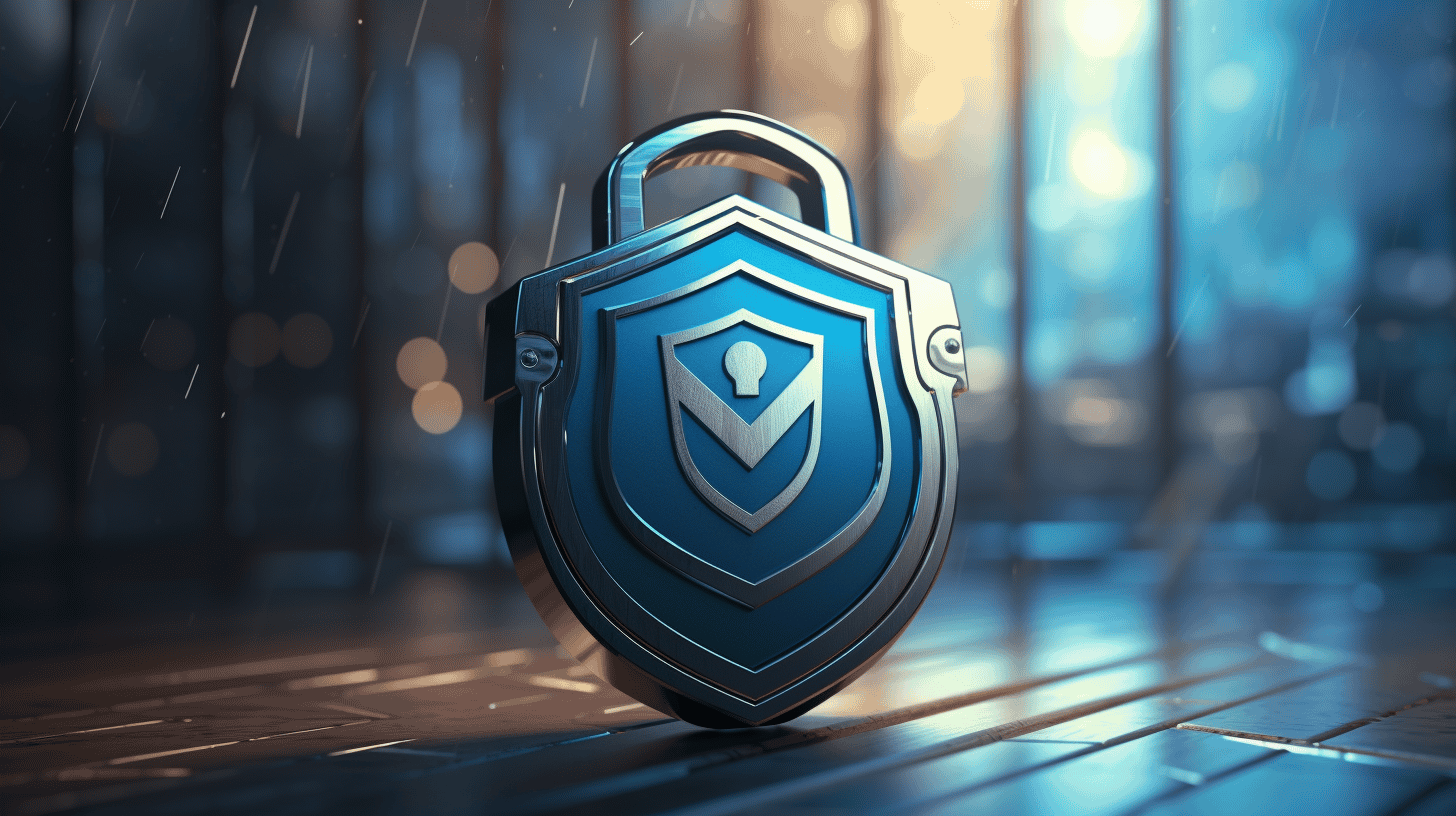作为在线商店所有者,维护 WordPress 网站对于业务成功至关重要。定期维护可确保您的网站运行顺畅、免受潜在威胁并优化性能。但是,浏览 WordPress 维护的世界可能会让人不知所措,尤其是如果您是该平台的新手。
但不要害怕!本综合指南旨在帮助您了解定期维护的重要性、所涉及的任务、安全注意事项、性能优化以及与 SEO 的相关性。我们还将深入探讨电子商务网站的特定维护需求,重点关注 WooCommerce。此外,我们还将提供见解,帮助您为您的在线商店选择合适的维护服务、插件和托管服务提供商。
在本指南结束时,您将拥有自信地管理和维护 WordPress 网站的知识和工具,确保其顺利运行并帮助您的在线业务蓬勃发展。所以,让我们一起深入探索 WordPress 维护的世界吧!🚀
定期 WordPress 维护的重要性
介绍:
定期的 WordPress 维护对于您网站的顺利运行和安全至关重要。它涉及及时了解最新功能和安全升级,这有助于确保您的网站安全并发挥最佳功能。在本文中,我们将讨论定期 WordPress 维护的重要性以及它如何从长远来看使您的网站受益。
定期 WordPress 维护的好处:
- 增强的安全性: 定期维护 WordPress 的主要原因之一是确保网站的安全。WordPress 是一个流行的平台,由于其广泛使用,黑客经常将其作为攻击目标。通过保持 WordPress 核心、主题和插件的更新,您可以显著降低黑客可能利用漏洞的风险。
- 性能改进: 定期维护可让您的网站顺畅运行并保持最佳性能。过时的插件或主题会降低您的网站速度,导致用户体验不佳并可能赶走访问者。通过确保所有插件和主题都更新到最新版本,您可以提高网站的速度和整体性能。
- 错误修复和兼容性: WordPress、主题和插件的更新通常包括错误修复和兼容性改进。这些更新解决了所有已知问题,并确保您的网站能够与最新版本的 WordPress 和插件更新无缝运行。通过定期维护您的 WordPress 网站,您可以避免兼容性问题并确保流畅的用户体验。
- 及时了解最新功能: WordPress 会定期发布新功能和改进,以增强用户体验和网站功能。定期维护可确保您充分利用这些新功能,从而为网站访问者提供更好的体验。
- 搜索引擎优化 (SEO): 定期维护对网站的 SEO 工作起着重要作用。Google 等搜索引擎非常重视定期更新和维护的网站。通过保持 WordPress 网站的最新状态,您可以向搜索引擎展示您的网站活跃、值得信赖且相关,这可以对您的搜索引擎排名产生积极影响。
来源: 有效的 WordPress 维护
结论:
定期进行 WordPress 维护对于确保网站安全、优化性能和利用最新功能至关重要。通过及时了解 WordPress 核心更新、插件和主题,您可以确保功能顺畅并增强网站的安全性。不要忽视定期维护 - 投入时间和精力让您的 WordPress 网站保持最佳状态。
典型的 WordPress 维护任务
维护好 WordPress 网站对于实现最佳性能和安全性至关重要。定期维护可确保您的网站顺利运行并免受潜在漏洞的侵害。在本节中,我们将探讨 WordPress 网站所有者应定期执行的一些典型维护任务。
核心、主题和插件更新
定期更新 WordPress 核心、主题和插件对于保持网站最佳运行至关重要。这些更新通常包括错误修复、安全补丁和可增强网站性能的新功能。
🔧 更新 WordPress 核心:WordPress 会定期发布更新来解决安全问题并改进功能。通过及时了解最新版本,您可以确保您的网站受到保护并使用最新功能进行优化。
🎨 更新主题:主题控制 WordPress 网站的整体外观和布局。主题开发人员经常发布更新来修复错误、提高兼容性并引入新的设计元素。保持主题最新可确保为访问者提供视觉上令人愉悦且引人入胜的用户体验。
🔌 插件更新:插件可为您的 WordPress 网站添加功能,例如联系表单、SEO 优化和社交媒体共享。插件开发人员会定期发布更新以修复错误、添加新功能并增强与最新版本 WordPress 的兼容性。请记住定期更新您的插件,以利用改进的功能和增强的安全性。
清理不必要的数据
随着时间的推移,WordPress 会积累不必要的数据,这些数据会拖累您的网站,降低其速度并影响其性能。清理这些数据是一项重要的维护任务,可以帮助优化您的网站并提高其速度。
⚙️ 数据库优化:WordPress 使用数据库来存储您网站的所有内容和设置。优化此数据库涉及删除不必要的数据,例如帖子修订、垃圾评论和已删除的项目。通过定期优化数据库,您可以减小其大小并提高网站的整体性能。
🗑️ 删除不需要的文件和图像:更新和修改网站时,您可能会积累未使用的文件和图片,从而占用服务器空间。定期删除这些未使用的文件可以释放存储空间并加快网站加载速度。
定期备份
无论您的 WordPress 网站维护得多么好,都可能会发生黑客攻击或服务器故障等不可预见的事件。定期备份网站数据对于保护您的内容和在紧急情况下恢复网站至关重要。
💾 计划备份:设置自动备份系统,定期备份您网站的文件和数据库。这样可以确保即使发生灾难,您也可以快速将网站恢复到以前的状态。
通过定期执行这些典型的 WordPress 维护任务,您可以确保您的网站保持安全、最佳性能并提供出色的用户体验。使用提高生产力的自动化工具简化您的 WordPress 维护,这些工具可以简化和自动化许多这些基本任务。 简化 WordPress 维护 今天就更好地照顾您的网站!
WordPress 维护中的安全注意事项
在当今世界,网络威胁日益复杂,确保 WordPress 网站的安全比以往任何时候都更加重要。忽视安全措施可能会使您的网站容易受到黑客攻击、数据泄露和恶意软件感染。在 WordPress 维护方面,保护您的网站应该是重中之重。让我们探讨一些基本的安全注意事项:
密码保护
保护您的 WordPress 网站的第一道防线之一是设置强密码。弱密码会让黑客更容易未经授权访问您的网站。以下是一些密码保护的最佳做法:
- 使用大写和小写字母、数字和特殊字符的组合。
- 为 WordPress 网站上的每个用户帐户创建唯一的密码。
- 避免在密码中使用个人身份信息或常用词。
- 定期更新您的密码。
请记住,强密码是保护您的网站免受潜在攻击的第一步。
SSL 证书的使用
使用 SSL(安全套接字层)证书对于保护您的网站与其用户之间传输的数据至关重要。SSL 证书可加密数据并提供安全连接,防止窃听和数据盗窃。以下是 SSL 证书必不可少的原因:
- 它们确保用户信息(例如登录凭据和个人详细信息)的隐私和完整性。
- SSL 证书可以激发您网站访问者和客户的信任。
- 搜索引擎在排名中优先考虑安全的网站,这可以改善您的 SEO 效果。
确保为您的 WordPress 网站获取并安装 SSL 证书以建立安全连接。
正常运行时间监控
确保您的网站始终可供访问者访问至关重要。停机不仅会影响用户体验,还会使您的网站容易受到恶意攻击。实施正常运行时间监控可帮助您了解可能导致网站离线的任何潜在问题。以下是正常运行时间监控重要的原因:
- 它可以帮助您快速识别并解决停机问题。
- 持续监控可帮助您及时发现并解决任何与性能相关的问题。
- 正常运行时间监控服务提供实时警报,让您随时了解网站的可用性。
投资可靠的正常运行时间监控工具或服务可以帮助您维护安全可靠的 WordPress 网站。
安全扫描
定期安全扫描对于保护您的 WordPress 网站免受漏洞和恶意软件的侵害至关重要。这些扫描会分析您网站的文件和数据库,搜索潜在的安全风险。安全扫描的主要好处包括:
- 检测并删除恶意软件或恶意代码。
- 识别可能存在安全漏洞的过时的插件、主题或 WordPress 核心文件。
- 防止暴力攻击和黑客攻击。
考虑使用安全插件或外部安全服务进行彻底扫描并识别需要解决的任何安全漏洞。
请记住,在 WordPress 维护方面,安全性应该是重中之重。通过实施强密码、使用 SSL 证书、定期进行安全扫描和监控网站正常运行时间,您可以显著降低安全漏洞的风险并确保 WordPress 网站安全可靠。
要了解有关最大限度提高网站安全性的更多信息,请查看我们的文章 最大程度提高网站安全性.
WordPress 网站的性能优化
您的 WordPress 网站运行速度是否比您希望的要慢?您想为用户提供快速、无缝的浏览体验吗?如果是这样,那么是时候考虑对您的 WordPress 网站进行一些性能优化了。通过实施一些关键策略,您可以显著改善网站的加载时间和整体性能。在本文中,我们将探讨三个基本优化:图像优化、最小化 CSS 和 JavaScript 文件以及数据库优化。让我们开始吧!
🌄 图像优化
图片是任何网站不可或缺的一部分,但如果优化不当,也会导致加载时间变慢。以下是优化图片和提高网站性能的一些技巧:
- 压缩:使用图像压缩工具或插件来减小图像文件大小,而不会影响其质量。这可以显著减少加载时间。
- 适当的尺寸:将图片大小调整为网站上显示的尺寸。使用过大的图片可能会不必要地减慢网站速度。
- 延迟加载:实现延迟加载,这是一种延迟加载屏幕外图像的技术,直到用户向下滚动页面。这可以大大缩短初始加载时间。
🔗 有关图像优化的更多详细信息,请参阅我们的指南 如何优化 WordPress 网站的图片.
📦 压缩 CSS 和 JavaScript 文件
CSS 和 JavaScript 文件对于网站功能至关重要,但它们也可能很庞大且运行缓慢,从而影响网站性能。缩小这些文件可以显著缩短加载时间。您可以这样做:
- 删除空格和注释:消除 CSS 和 JavaScript 文件中不必要的空格和注释。这样可以减小文件大小,从而加快加载速度。
- 合并和缩小:将多个 CSS 和 JavaScript 文件合并为一个文件并对其进行压缩。这可以减少 HTTP 请求的数量并减小整体文件大小。
🔗 要了解有关压缩 CSS 和 JavaScript 文件的更多信息,请访问我们的综合指南 优化 WordPress 网站的 CSS 和 JavaScript.
🗄️ 数据库优化
优化 WordPress 数据库会对网站的性能产生重大影响。通过删除不必要的数据并优化数据库结构,您可以缩短加载时间并减少数据库查询。请按照以下步骤进行数据库优化:
- 定期清理:删除未使用的主题、插件、草稿和垃圾评论。这些内容会随着时间的推移而累积,并占用数据库中宝贵的空间。
- 优化数据库表:使用插件或手动优化数据库表以最小化其大小并提高效率。
🔗 有关数据库优化的详细指南,请参阅我们的文章 如何优化你的 WordPress 数据库.
通过实施这些性能优化,您可以创建更快、更用户友好的 WordPress 网站。请记住,优化图像、缩小 CSS 和 JavaScript 文件以及实施数据库优化都是实现最佳网站性能的必要步骤。立即开始实施这些策略,看看您的网站加载速度如何闪电般快!
WordPress 维护中的相关性和 SEO 注意事项
在当今的数字环境中,拥有一个维护良好的网站对于企业和个人都至关重要。说到网站维护,WordPress 是目前最受欢迎的内容管理系统之一。但除了确保您的网站顺利启动和运行之外,还有其他重要考虑因素需要考虑——相关性和 SEO。
内容审核和清理
从 SEO 角度维护 WordPress 网站时,定期检查和清理内容非常重要。以下是这至关重要的几个原因:
- 过时的内容: 随着时间的推移,您的网站内容可能会过时,导致其与搜索引擎的相关性下降。通过定期检查和更新您的内容,您可以确保它对用户和搜索引擎来说都是新鲜且信息丰富的。
- 关键词优化: 随着搜索算法的发展,使用相关关键词优化内容至关重要。定期审核内容可让您发现纳入关键词的机会或更新现有关键词以符合当前搜索趋势。
- 断开的链接和重定向: 无效链接和重定向会对网站的用户体验和 SEO 产生负面影响。通过定期检查,您可以识别并修复任何无效链接或过期重定向,确保访客获得无缝的浏览体验。
- 提高网站速度: 网站速度是搜索引擎的重要排名因素。在内容审核期间,请考虑优化图片、压缩文件并删除不必要的插件,以缩短网站的加载时间。
SEO最佳实践维护
保持良好的 SEO 实践并非一次性任务;它需要持续的努力和关注。以下是 WordPress 维护的一些关键 SEO 注意事项:
- 优化标题标签和元描述: 标题标签和元描述在决定您的网站如何出现在搜索引擎结果中起着至关重要的作用。确保您的 WordPress 网站上的每个页面都有独特且经过优化的标题标签和元描述,以准确描述内容。
- 博客文章之间的相互链接: 相关博客文章之间的相互链接可以提高您网站的整体可见性,并帮助搜索引擎更有效地发现和索引您的内容。定期查看您的博客文章并寻找机会添加内部链接,引导用户和搜索引擎浏览您的网站。
- XML 站点地图更新: XML 站点地图可充当搜索引擎的路线图,帮助它们了解您网站的结构和层次结构。定期更新 XML 站点地图,以包含新页面、博客文章以及网站结构的任何更改。
- 移动友好型设计: 由于大多数互联网用户都在移动设备上浏览,因此拥有一个适合移动设备的网站对于用户体验和 SEO 都至关重要。确保您的 WordPress 网站针对移动设备进行了优化,并在不同屏幕尺寸上表现良好。
请记住,保持良好的 SEO 实践(例如在博客文章之间建立链接并使用正确的标题标签结构)可提高网站可见性、增强用户体验,并最终有助于网站的整体成功。积极主动地审查和改进 WordPress 网站的相关性和 SEO,您将从增加自然流量和提高搜索引擎排名方面获益。
电子商务维护:WooCommerce 重点
🔧 定期 WooCommerce 更新
在不断发展的电子商务世界中,保持在线商店的更新至关重要。WooCommerce 是 WordPress 上最受欢迎的在线商店平台之一,需要定期更新以确保最佳性能和安全性。
为了让您的 WooCommerce 商店保持最佳状态,保持最新更新至关重要。这些更新不仅包括核心 WooCommerce 软件,还包括其组件,例如主题和插件。通过定期更新您的 WooCommerce 安装,您可以利用错误修复、功能增强,以及最重要的安全补丁。
更新 WooCommerce 是一个简单的过程,可以直接从 WordPress 仪表板完成。只需导航到“插件”部分,找到 WooCommerce,然后单击“立即更新”按钮。在执行任何更新之前备份您的网站总是一个好主意,以防万一出现问题。
💡 专业提示: 启用 WooCommerce 的自动更新可以节省您的时间并确保您的商店始终运行最新版本。为此,请转到 WooCommerce 设置并选中“启用自动更新”复选框。
🔒 电子商务安全扫描
经营网上商店时,安全始终是重中之重。随着网络威胁和数据泄露的增加,定期扫描 WooCommerce 网站以查找漏洞和潜在风险至关重要。
有多种安全插件可以帮助您完成此任务。这些插件会扫描您的网站是否存在恶意软件、漏洞和可疑活动,让您高枕无忧,因为您的在线商店受到了保护。
WooCommerce 安全插件中需要寻找的一些关键功能包括:
- 恶意软件扫描和删除
- Web 应用程序防火墙 (WAF) 可阻止恶意流量
- 实时威胁情报以识别和预防攻击
- 双重身份验证,增加安全保障
🛒 测试结帐流程
结账流程是任何电子商务商店的关键部分。这是客户完成购买的最后一步,任何问题或摩擦点都可能导致放弃购物车和销售损失。
为了确保为客户提供顺畅、轻松的结账体验,定期测试结账流程至关重要。这包括:
- 将产品添加到购物车
- 输入客户信息
- 选择送货和付款方式
- 下订单
通过定期测试这些流程,您可以识别并修复可能出现的任何问题,例如链接断开、支付网关错误或运费计算问题。这将帮助您为客户提供无缝的购物体验并提高转化率。
⚡ 运行速度测试
网站速度是电子商务成功的关键因素。页面加载缓慢会导致访问者感到沮丧、跳出率上升和销售损失。因此,定期测试 WooCommerce 商店的速度并对其进行优化以获得最佳性能至关重要。
有多种工具可以帮助您衡量网站的速度并找出需要改进的地方,例如:
- Google PageSpeed Insights
- GT矩阵
- Pingdom 工具
通过分析这些速度测试的结果,您可以进行必要的优化,例如压缩图片、缩小脚本和样式表以及利用浏览器缓存。这些优化可以显著缩短网站的加载时间并提升用户体验。
🔄 软件更新和备份
除了 WooCommerce 特定的更新外,保持整个 WordPress 安装为最新状态也很重要。定期更新 WordPress、主题和插件可确保您拥有最新的功能、错误修复和安全补丁。
但是,在执行任何更新之前,备份您的网站至关重要。备份可充当安全网,如果在更新过程中出现问题,您可以将网站恢复到正常工作状态。
WordPress 有多种备份插件,可自动执行备份过程,只需单击几下即可恢复网站。一些流行的选项包括 UpdraftPlus、BackupBuddy 和 VaultPress。
请记住,维护安全且高性能的 WooCommerce 商店需要定期更新、安全扫描、结帐测试、速度优化和备份。通过遵循这些最佳实践,您可以确保您的在线商店始终顺利运行并为您的客户提供积极的体验。
🌐 阅读有关在 WordPress 上运营在线商店的更多信息 在这里,.
选择帮助:维护服务和插件
维护 WordPress 网站可能是一项耗时的任务,尤其是对于忙碌的企业主或博主来说。幸运的是,有一些便捷的解决方案可以帮助简化流程并确保您的网站顺利运行。两种流行的选择是第三方维护服务和维护插件。此外,选择可靠的托管服务提供商也可以在网站的整体管理中发挥关键作用。
第三方维护服务
第三方维护服务是专门管理和维护 WordPress 网站的专业公司。这些服务提供广泛的功能和优势,包括:
- 定期更新:它们确保您的 WordPress 核心、主题和插件始终是最新的。
- 安全监控:他们密切关注您网站的安全性,检测并解决任何潜在的漏洞。
- 备份和恢复:他们会定期备份您网站的文件和数据,以便您在出现任何意外问题时快速恢复。
- 性能优化:他们优化您的网站速度和性能,确保无缝的用户体验。
- 技术支持:无论何时您的网站遇到任何问题,他们都会提供专家支持和故障排除帮助。
通过将您的网站维护外包给第三方服务,您可以节省宝贵的时间并专注于您的核心业务活动,因为您知道您的网站在有能力的人手中。
维护插件
如果您更喜欢亲自动手的网站维护方法,维护插件可能是一个很好的解决方案。这些插件提供了多种功能,可帮助您管理和改进 WordPress 网站,包括:
- 更新管理:它们会跟踪并通知您 WordPress 核心、主题和插件的可用更新,让您轻松地让一切保持最新状态。
- 安全增强功能:它们提供恶意软件扫描、防火墙保护和登录锁定等安全功能,以帮助保护您的网站。
- 备份和恢复功能:它们使您能够创建和安排网站文件和数据库的备份,从而提供额外的保护层。
- 性能优化工具:它们提供缓存选项、图像优化和页面速度改进,以提高您网站的性能。
- SEO优化:一些维护插件还提供工具来帮助您针对搜索引擎优化您的网站,从而提高您的在线可见性。
使用维护插件,您可以更好地控制网站的维护任务,并可以根据您的特定需求进行定制。
选择托管服务提供商
除了维护服务和插件之外,选择可靠的托管服务提供商对于顺畅、无忧的网站维护体验至关重要。选择托管服务提供商时,请考虑以下因素:
- 可靠性和正常运行时间:寻找具有高正常运行时间和可靠服务器性能记录的提供商。
- 安全功能:确保托管服务提供商提供强大的安全措施来保护您的网站免受潜在威胁。
- 可扩展性:如果您的网站流量增长,您会需要一个能够在不牺牲性能的情况下处理增加的负载的托管服务提供商。
- 支持和协助:选择提供及时且专业的客户支持的托管服务提供商,以协助您解决任何与维护相关的问题。
通过与信誉良好的托管服务提供商合作,您可以确保您的网站托管在稳定且安全的平台上,从而最大限度地减少频繁维护干预的需要。
因此,无论您选择第三方维护服务、维护插件还是两者兼而有之,并选择可靠的托管服务提供商,您都可以简化管理和维护 WordPress 网站的任务。聘请 WordPress 网站管理服务或使用维护插件,并聘请可靠的托管服务提供商可以帮助简化网站维护任务,让您专注于您最擅长的事情:经营您的业务或与世界分享您的内容。
定期检查和清理
定期检查和清理网站对于保持最佳性能、确保安全性和提供积极的用户体验至关重要。忽视这项重要任务可能会导致网站加载缓慢、链接断开和内容过时。在本节中,我们将讨论在定期网站检查和清理期间要关注的三个重要领域:检查和删除不必要的插件、修复断开的链接以及优化数据库。
检查并删除不必要的插件
插件是增强网站功能的绝佳方式,但插件过多会降低网站速度,并可能带来安全漏洞。定期检查网站上安装的插件并删除不必要或不再有用的插件至关重要。通过这样做,您可以:
- 提高网站性能:您安装的每个插件都会为您的网站添加额外的代码,这可能会导致加载时间更长。通过减少插件数量,您可以简化网站并确保更快的页面加载速度。
- 增强安全性:过时或维护不善的插件容易受到安全漏洞的影响,使您的网站成为黑客的目标。通过删除不必要的插件,您可以减少潜在的攻击面并增强网站的安全性。
- 简化维护:插件越少,管理更新和故障排除问题就越容易。通过仅保留必要的插件,您可以简化维护工作,并确保您和您的访问者获得更流畅的网站体验。
修复损坏的链接
断开的链接会对您的网站用户体验和搜索引擎排名产生负面影响。当访问者遇到断开的链接时,可能会导致沮丧,并可能失去对您网站可信度的信任。此外,断开的链接会阻止搜索引擎机器人正确抓取和索引您的页面,从而损害您的 SEO 工作。以下是修复断开链接至关重要的原因:
- 改善用户体验:带有无效链接的网站会让访问者感到沮丧,并阻止他们进一步探索。定期扫描和修复无效链接可确保流畅的浏览体验,并帮助您留住网站访问者。
- 提高 SEO 性能:搜索引擎重视用户体验,并奖励提供高质量内容和良好浏览体验的网站。通过修复损坏的链接,您可以向搜索引擎发出信号,表明您的网站维护良好且值得信赖,这会对您的搜索引擎排名产生积极影响。
- 保持可信度:断开的链接会给人留下网站内容被忽视或过时的印象。通过及时修复断开的链接,您可以展示提供准确和最新信息的承诺,从而增强网站的可信度。
数据库优化
优化网站的数据库有助于提高网站的整体性能和效率。随着网站的发展以及内容的添加或修改,数据库可能会因不必要的数据而变得臃肿,从而减慢页面加载时间。以下是优化数据库至关重要的原因:
- 页面加载速度更快:经过优化的数据库可减少检索和显示网站内容所需的时间。这可加快页面加载速度,提供更好的用户体验。
- 高效存储:优化数据库可删除不必要的数据,例如帖子修订和垃圾评论。这可减少数据库的大小,从而提高存储利用效率。
- 改进的网站备份和恢复:经过良好优化的数据库可使网站备份更快、更轻松。此外,当您的数据库经过整理和优化时,从备份恢复网站会变得更加顺畅,并且不容易出错。
花时间定期检查和清理会对网站的性能、安全性和用户体验产生重大影响。通过检查和删除不必要的插件、修复损坏的链接和优化数据库,您可以确保网站顺畅高效地运行。请记住,维护良好的网站才是快乐的网站!🚀
结论
总之,定期维护 WordPress 对于您的在线商店的顺利运行和最佳性能至关重要。通过定期更新您的核心、主题和插件、清理不必要的数据以及实施定期备份,您可以确保您的网站保持安全、性能良好并在 SEO 方面保持相关性。此外,关注安全注意事项、优化性能和维护您的电子商务平台(如 WooCommerce)的功能对于成功的在线业务至关重要。
请记住,管理所有这些任务可能会让人不知所措,尤其是如果您经营一家网店。这就是 Managed-WP™ 的作用所在。作为一款高级托管 WordPress 云托管平台,Managed-WP™ 可简化您的基础设施,提供专业的 WordPress 支持并提供主动监控。借助 Managed-WP™,您可以专注于经营您的网店,而将 WordPress 维护的技术方面交给专业人士。了解有关 Managed-WP™ 的更多信息以及它如何使您的在线业务受益 在这里,。🚀
常见问题
- 为什么定期维护对我的 WordPress 网上商店很重要?
定期维护对于您的 WordPress 在线商店非常重要,因为它可以确保您的网站的性能、安全性和功能得到优化。它有助于防止停机、改善用户体验,并使您的网站保持最新功能和安全补丁。
- 我的 WordPress 维护例程中应该包括哪些任务?
您的 WordPress 维护程序应包括更新插件和主题、优化数据库、备份您的网站、监控安全性、检查断开的链接以及定期审查和更新网站内容等任务。
- 我应该多久对我的 WordPress 网上商店进行一次维护?
建议每月至少对您的 WordPress 网上商店进行一次定期维护。但是,根据您网站的大小和复杂程度,您可能需要考虑更频繁地执行维护任务,例如每周或每两周一次。
- 我需要技术知识来执行 WordPress 维护吗?
虽然具备一些技术知识会有所帮助,但您不一定需要成为专家才能执行 WordPress 在线商店的基本维护任务。许多维护任务都可以通过用户友好的插件和工具轻松完成。
- 是否有任何插件或工具可以帮助 WordPress 维护?
是的,有几种插件和工具可以帮助维护 WordPress。一些流行的插件和工具包括用于备份的 UpdraftPlus、用于安全的 Sucuri、用于识别断开链接的 Broken Link Checker 和用于优化数据库的 WP-Optimize。



















